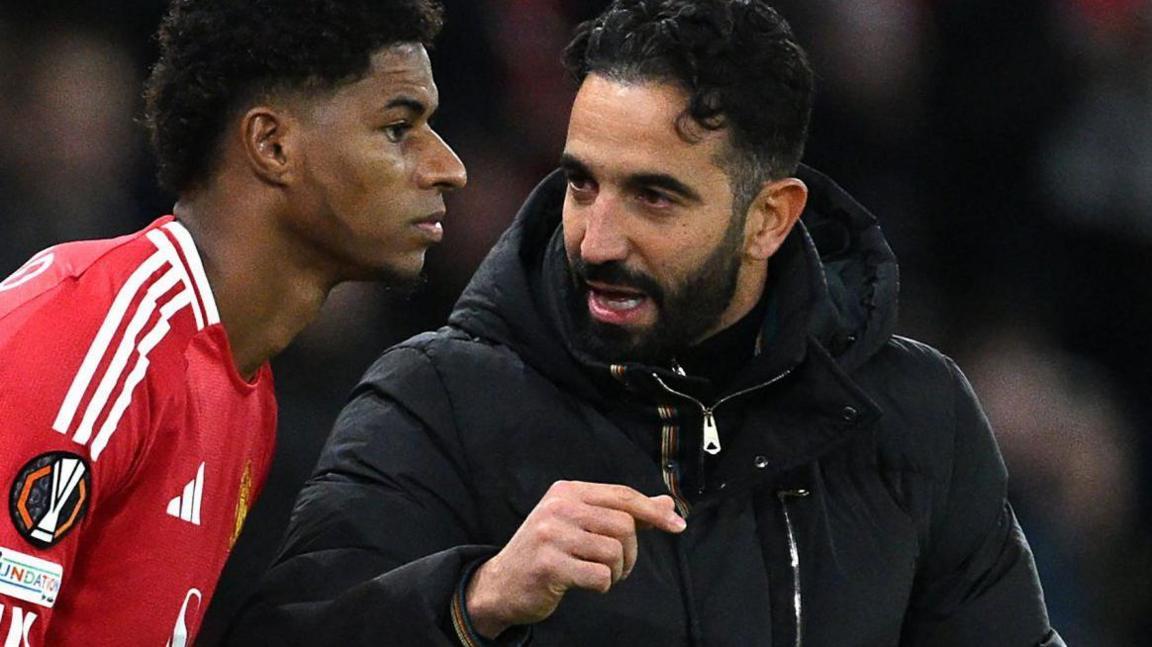Instant Access
No Waiting, Start Streaming Now
24/7 Support
Always Here to Help
Multi-Device
Watch on Any Screen
8K Quality
Crystal Clear Streaming


Instant Access
No Waiting, Start Streaming Now
24/7 Support
Always Here to Help
Multi-Device
Watch on Any Screen
8K Quality
Crystal Clear Streaming
In the ever-evolving landscape of football, adaptability often determines a player’s success or struggle within a club. As teams strive for excellence, the synergy between player and environment becomes crucial. In this context, the case of marcus rashford serves as a compelling narrative of ambition and resilience. Recently, club analyst Amorim shed light on Rashford’s departure, suggesting that his inability to adapt to the team’s ideology ultimately led to his exit. This article delves into the intricacies of Rashford’s journey, exploring the factors that contributed to his challenges and the implications for both the player and the club. As we unravel this chapter of sporting evolution, we gain valuable insights into the delicate interplay between individual talent and collective identity in the lovely game.
Amorim’s critique of Marcus Rashford’s exit provides insight into the challenges of player adaptability. The coach emphasized that Rashford’s departure was not a reflection of his talent, which remains indisputable, but rather a result of his inability to fully integrate into the tactical framework demanded by the team. “Talent alone isn’t enough,” amorim reportedly remarked, offering a glimpse into his philosophy. While some fans lamented losing a player of Rashford’s caliber,the coach seemed steadfast in his belief that a cohesive system must prioritize structure over star power. For Amorim, it’s about ensuring that every cog in the machine operates harmoniously, and Rashford, unluckily, fell short in aligning with the collective vision.
Interestingly, a closer look at Rashford’s performance statistics under Amorim’s reign sheds light on these challenges. Here’s a simplified breakdown:
| Metric | Expected | Delivered |
|---|---|---|
| Goals per Match | 0.8 | 0.4 |
| Pressing Efficiency | 85% | 62% |
| Pass Completion | 88% | 75% |
While Rashford’s skillset remained undeniable, this table highlights how key metrics underwhelmed expectations. Amorim’s decision, polarizing as it might potentially be, appears rooted in delivering results for the collective rather than revolving around individual brilliance.
Marcus Rashford’s time under Amorim’s management revealed several underlying factors that contributed to his inability to find his footing. One notable challenge was his difficulty in adjusting to the tactical demands of Amorim’s system. The manager’s philosophy demands dynamic positioning and quick adaptability between defence and attack—requirements Rashford occasionally struggled to meet. This led to moments where his role appeared fragmented, impacting both his confidence and performance. Furthermore, an intense, high-press environment might not have been fully compatible with Rashford’s natural playing rhythm, causing friction in his on-field contributions.
External influences also played their part. The pressure of living up to expectations in a high-stakes football environment amplified the stress of his adaptation process. Additionally, Rashford’s personal playing style—reliant on direct runs and high pace—did not always sync seamlessly with Amorim’s structured, possession-based tactics. Consider these key differences:
| Rashford’s Approach | Amorim’s Philosophy |
|---|---|
| Direct, explosive plays | structured, controlled movement |
| Individual flair | Team-first responsibilities |
| Quick counterattacks | Sustained possession-based build-ups |
These disparities meant Rashford faced a steep adjustment curve, which, despite his efforts, remained unresolved during his time with Amorim. While his talent is undeniable, aligning individual strengths with team dynamics proved to be a central challenge in his journey.
Fostering a seamless adjustment for incoming players is essential to building a cohesive and high-performing squad. Amorim emphasizes the importance of establishing a structured yet flexible support system that caters to both the professional and personal needs of newcomers. Clubs should focus on creating an environment that helps players understand not just tactical responsibilities but also the club’s culture and values. Simple yet impactful initiatives like tailored mentorship programs, cultural immersion activities, and routine feedback meetings can bolster the confidence of any player stepping into a new team dynamic.
Key tactical strategies can also play a transformative role in ensuring better adaptation. amorim suggests implementing position-specific training plans and setting clear short-term goals that align with a player’s growth. Furthermore, fostering off-the-pitch bonding is equally critical. Activities like team-building exercises, language support, and assigning experienced teammates as integration guides can bridge emotional and cultural gaps. Here’s a quick snapshot of effective adaptation measures:
| Factor | Proposed Solution |
|---|---|
| Language Barriers | Offer professional translation and tutoring assistance. |
| Adjustment to Tactics | Gradual introduction during training and simulations. |
| Lack of Connection | Assign mentors and organize team-building events. |
Marcus Rashford’s departure from Ruben Amorim’s squad has left football enthusiasts speculating about his next move. Following his struggles to adapt to amorim’s unique tactical demands, the forward is now presented with a clean slate to redefine his career. A hallmark of Rashford’s journey has always been his resilience,and many believe that this chapter could serve as a turning point,allowing him to thrive in an environment better suited to his strengths. Clubs across Europe are reportedly keen to secure his services as they recognize his explosive pace, versatility, and goal-scoring ability.
| Key Clubs Interested | League | Possible Role |
|---|---|---|
| Barcelona | La Liga | Left Winger |
| AC Milan | Serie A | Central Forward |
| Newcastle United | Premier League | Wide Forward |
it is indeed clear that rashford’s options are vast, and how he chooses to navigate this transitional phase could define the next few years of his career. Whether it’s rediscovering his form on home soil or embracing a new footballing culture, the stage is set for Rashford to embark on a journey of reinvention.
In the ever-evolving landscape of professional football,adaptability is often the key to a player’s success. As we reflect on the chapter of Marcus Rashford’s journey under the tutelage of Amorim, it becomes evident that the nuances of style and philosophy can be as pivotal as raw talent. Even though the potential for greatness was palpable, the alignment of strategy and player strengths proved elusive, prompting the decision for rashford to part ways.
This turn of events not only highlights the complexities of individual fit within team dynamics but also reminds us that change is a fundamental aspect of growth in the beautiful game. As Rashford embarks on a new path, and Amorim continues to shape his team’s identity, fans and pundits alike are left to ponder what the future holds for both. In football, as in life, sometimes the journey forward involves taking a step back—an opportunity to re-evaluate, adapt, and ultimately flourish in new surroundings.
34,353
Live TV Channels
162,404
Movies
27,802
Series
284,023
Total Subscriptions
139,854
Users Online
142,887
Total Resellers

